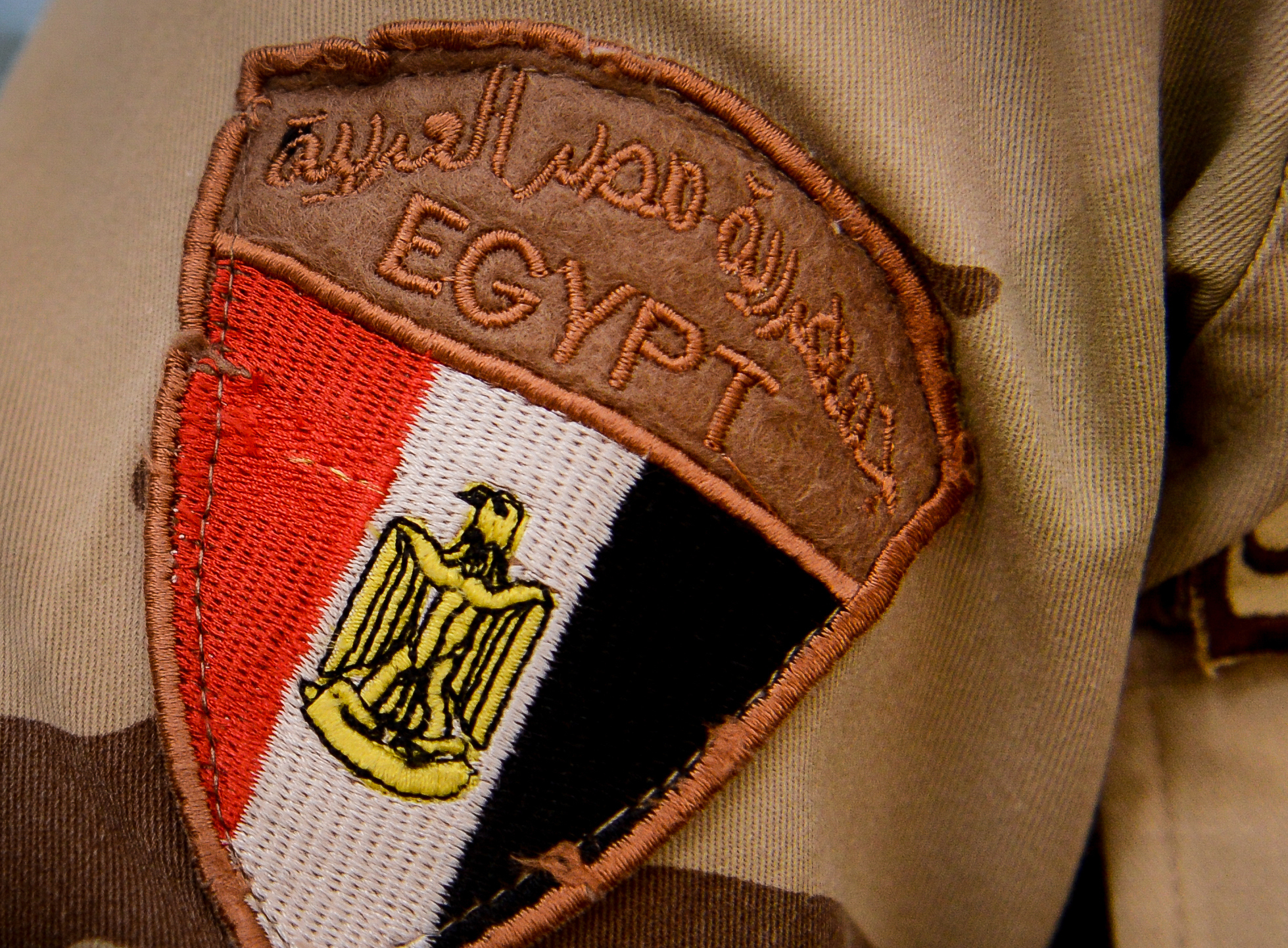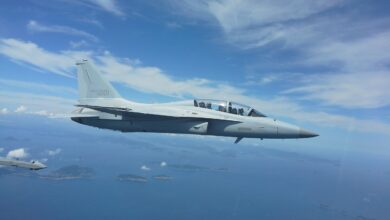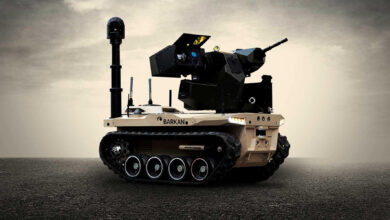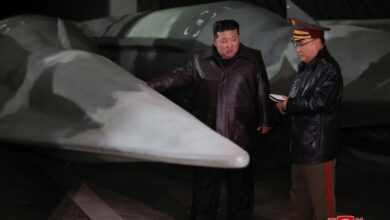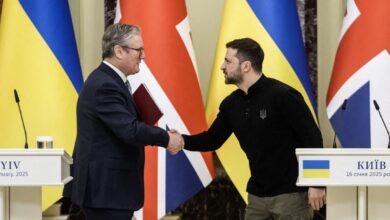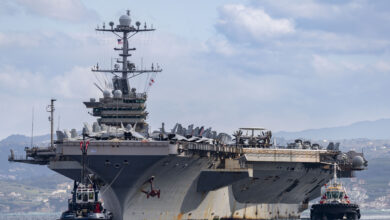The rule of khaki: How Egypt’s military dominates the economy
To no one’s surprise, Abdel Fattah el-Sisi easily won re-election in Egypt’s presidential election last month.
A victory rally for Sisi was held on April 3 in the Red Sea town of Hurghada. The rally in a town of 300,000 produced only a few hundred supporters who cheered and waved Egyptian flags. Security forces may have been expecting a large turnout as checkpoints were set up for miles around and traffic was stopped on the corniche.
Some of the resorts along the corniche have ties to the Egyptian military, locals say. This would not be surprising in a country where the military has played an outsized role in the economy for decades.
However, their role has only increased following the 2013 coup which saw Egypt’s first democratically elected president removed from power by the military. General Sisi, who led the coup against Mohammed Morsi, now leads the country, though he has traded his khaki uniform for civilian clothes.
How much of the economy is controlled indirectly or directly by the military is unclear. Naguib Sawiris, Egypt’s richest man, has said the army controls 40 percent of the Egyptian economy. Meanwhile Transparency International has suggested the figure could be as high as 60 percent. Recent figures suggest Egypt’s GDP was $336.3 billion in 2016.
“It has been said that the military’s economy is worth 20 or even 50 percent of the economy. I wish,” Sisi said in a speech last year. “We have nothing to hide; the military accounts for between 1.5 to 2 percent of the economy.” He added that the military paid taxes on all projects, and that they were subject to regulations and auditing.
In addition to scores of companies owned by the military, private companies often hire former senior military officers to ensure favorable treatment from the government. Often the transition from the barracks to the boardroom an easy one.
“The boards are putting and hiring more military men and retired officers,” said a former Egyptian executive who played a significant role in the country’s privatization in the 1990s.
“At present, there is a large Egyptian company with an ex-officer on the board, and he has refused to vote on pressing issues or to set the agenda,” the exasperated retired executive explained. “Others have pleaded with him but he treats entrepreneurship just like a retirement paycheck.”
The lack of initiative has long beleaguered Egypt’s military. Between 1948 and 1973 Egypt fought four wars with Israel. Kenneth M. Pollack in his monumental study The Arabs at War examined Egypt’s tactical record in these conflicts. The record suggests that even in situations when Egyptian forces held tactical advantages or made local gains the non-commissioned officers and junior officers refused to take the initiative.
In 1973, Egypt fought what can be considered history’s last modern war, in which opposing armored formations supported by air power were deployed against one another. Since then Egypt has had relative peace but maintains Africa’s largest army and one of the biggest in the world.
Consultants to Sisi’s government suggest that the military invests heavily in real-estate and factory projects in part because it can rely on under skilled conscript labor to cut costs.
Conscripts are paid roughly 300 Egyptian pounds ($17) a month, and their length of service, dependent on their level of education, can last up to three years. With some 835,500 Egyptians under arms there is apparently shortage of hands. While in service Egyptian conscripts are often forced to bribe superiors to avoid mistreatment or to pay extra for rations and certain equipment.
The Neo-Mamlukes
The term Neo-Mamluk is often used to describe the outsized role of the military in the Egyptian economy. The Mamluk refers to various regimes of Muslim slave-soldiers which dominated various parts of the Islamic world for a thousand years from the ninth century to the nineteenth.
The Mamluk sultanate controlled Egypt and much of the Middle East from 1250 until their defeat by the Ottomans, though the Mamluk survived as an institution long enough to fight Napoleon and to be ultimately crushed by the reform-minded Albanian-Egyptian ruler Muhammad Ali in the early 19th Century.
In 1954, Colonel Abdul Gamal Nasser seized power, overthrowing monarchical rule in Egypt and installing a military-socialist regime. Since then all but one of Egypt’s presidents have come from the military.
Nasser was partly inspired by Mustafa Kamal Attaturk, the Turkish military dictator who also sought to industrialize his country. However, Nasser was unsure how and sought the assistance of everyone from Soviet advisors to Austrian consultants and former Nazis to help the develop the country.
One path was to reform the Egyptian education system, but it would take at least a generation to show results. He also attempted land reform and to develop a Kibbutz-style collective village that conceptually also shared some ujamaa system developed around the same time in Tanzania.
The military, he eventually decided, would be the principal vehicle of the country’s advancement. Tank drivers and mechanics could, he hoped, easily find jobs in the modern Egyptian economy on their retirement.
His successor, Anwar Sadat, removed military officers from some key positions in the government but also sought to make the military economically self-sufficient. Hosni Mubarak greatly expanded this process, and in doing so sought to further win over the military with a variety of large tracts of land. A 1997 presidential decree gave the military control of all of Egypt’s “unused land” – the vast majority of the country – for their development.
Following the 2011 overthrow of the Mubarak regime Egypt was directly ruled by the Supreme Council of the Armed Forces, a body consisting of roughly 20-25 senior military officers that has origins in the Free Officers behind the 1952 coup that toppled the monarchy. Egypt General Mahmoud Nasr, a member of the SCAF at that time and the assistant minister of defense, said in 2012 that he would “never surrender the military-controlled projects to any other authority.” SCAF ruled Egypt directly until Morsi was elected, and briefly re-asserted itself after the July 3, 2013 coup that deposed him.
After the coup the military establishment re-entrenched itself in commanding heights of the economy. In late 2013, Adly Mansour, Egypt’s acting president, announced that transparent tendering award processes could be ignored in “cases of emergency.”
One of the most important arms of the Egyptian military-industrial complex has been the Armed Forces Engineering Authority. The government institution was awarded tenders for two of Sisi’s signature megaproject: the amplification of the Suez Canal and the New Cairo capital project.
With the army busy controlling the economy and shuffling senior officers onto corporate boards, it’s not surprising that Egypt’s military is failing in its main task – providing for the security of the Arab world’s most populous state.
Egyptian security forces are fighting insurgent groups who have conducted terrorist attacks in the Egyptian Delta and outskirts of Cairo, such as Liwaa al-Thawra and Harakat Sawa’id Misr, or HASM. Both groups have been designated terrorist organizations by the U.S. State Department and the United Kingdom. A potentially more serious threat has been Islamic State in the Sinai Peninsula.
Egypt is also, for the first time since 1967, fighting in two external wars. In Yemen and Libya, the Egyptian air force has been involved in combat operations; Sisi reportedly offered to send thousands of ground troops to aid the Saudis in Yemen.
How long Egypt’s military elite can maintain their grip on the economy and fight wars on so many fronts remains to be seen.
Back in Hurghada, Asharaf, a Christian taxi cab driver from Upper Egypt, avoids the checkpoints set up for the rally as he drives around town. If he didn’t have to work he might have attended the rally – Ashraf is a big fan of Sisi and takes pride in the fact that Egypt is ruled by someone who, like him, wore khaki in service of the country.
Not long ago he was driving something a bit more imposing than a taxi – a local Egyptian variant of M113 armored personnel vehicle in the Sinai desert. Ashraf’s unit avoided combat, and he came to love the armored fighting vehicle, although he admits it was not universally admired by his fellow soldiers.
“They called it the tuk-tuk of the desert, not as sturdy or new as other [AFVs], but I would take out at night when I wanted to and drive it around in the desert. I would take some friends and go driving in the desert. No one could stop me.”

